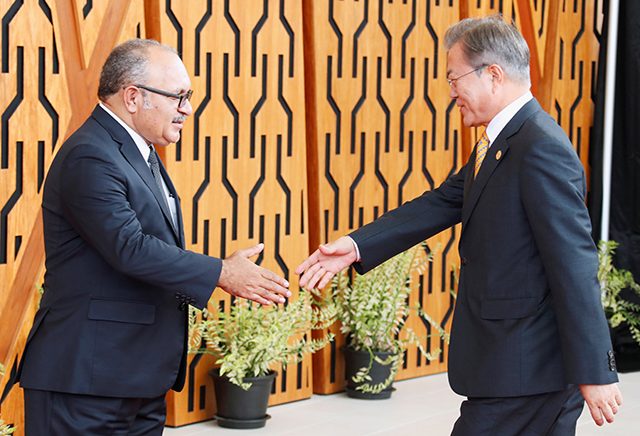
WASHINGTON — South Korea’s S-Oil Corp, Hyundai Oilbank Co and Jier Shin Korea Co took part in a bid-rigging scheme that led to more than $100 million in overcharges to the U.S. military, according to two sources with knowledge of the matter.
The three companies were not named in filings in U.S. federal court in Ohio that described a conspiracy that involved a total of six companies that overcharged U.S. military bases in South Korea for fuel.
The South Korea bid-rigging investigation is part of a more aggressive effort by the U.S. Justice Department to crack down on companies that defraud the U.S. government on military contracts.
The court papers filed by U.S. Justice Department after it settled with three other companies last month named SK Energy Co Ltd; GS Caltex Corp, 50 percent owned by Chevron; and Hanjin Transportation Co Ltd. They agreed to pay a total of $236 million in criminal fines and civil damages.
The Justice Department estimated that the bid rigging occurred from about 2005 to 2016. The government procurement data site GovTribe said that between 2008 and 2013 the major sellers of fuel to U.S. military bases in South Korea were S-Oil, GS Caltex, SK Energy, Hanjin, Hyundai Oilbank and Jier Shin Korea.
S-Oil Corp said through a spokesperson that it was “unaware of any investigation.” S-Oil is partially owned by Aramco Overseas, according to both Aramco’s and S-Oil’s web sites.
A spokesperson for Hyundai Oilbank acknowledged that it was under investigation but declined further comment. A Jier Shin Korea spokesperson also was “unaware of such investigation.”
Court filings which accompanied the Justice Department settlement with SK Energy, GS Caltex and Hanjin this month referred to other companies involved in the probe as Company A and Company C, both oil companies, and Company B, a logistics firm.
The sources, who were not authorized to speak on the record, identified S-Oil and Hyundai as the oil companies and Jier Shin as the logistics company.
The U.S. military had a budget of about $700 billion in the 2018 fiscal year, which ended on September 30.
A large proportion of the budget is spent in South Korea where the United States has kept a military presence in the divided peninsula since the 1950-1953 war. There are currently more than 28,000 troops in South Korea. Camp Humphreys south of Seoul is the largest U.S. overseas base with nearly 20,000 U.S. personnel.
Following the settlement announced last week, Makan Delrahim, head of the U.S. Justice Department’s antitrust division, said that the department planned to be more aggressive in pressing antitrust charges against companies that rigged bids for contracts to supply the government.
In addition to scrutinizing mergers to make sure they comply with antitrust law, the Justice Department investigates and charges companies that are supposed to compete but who conspire to raise prices.
The bid-rigging came to light because of a whistleblower, according to a lawyer for the whistleblower, Eric Havian of Constantine Cannon. —Reporting by Diane Bartz; Additional reporting by Joori Roh in Seoul and Idrees Ali in Washington; Editing by Chris Sanders and Clive McKeef



